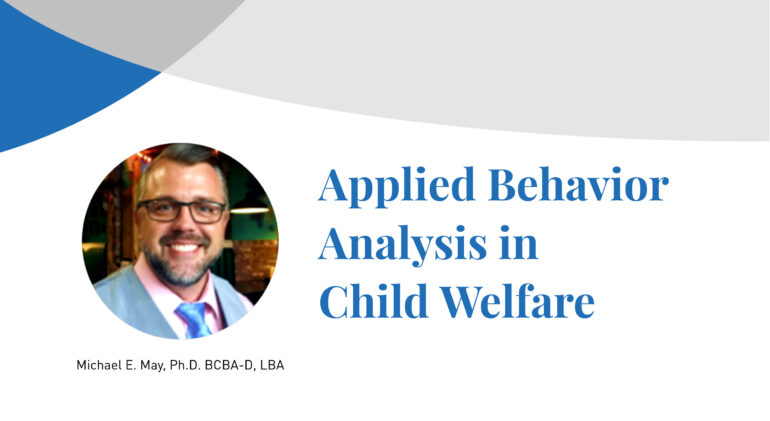It is commonly known that the field of Applied Behavior Analysis plays a pivotal role in improving lives of individuals with autism. Practitioners dedicate their career to providing evidence-based interventions to help these individuals develop skills and live fulfilling lives. However, this commitment comes with a cost, as many practitioners risk burning out from fatigue, boredom, stress, and overall personal satisfaction. Indeed, I am often asked by students and newly minted practitioners of ABA, “What else can I do with a background in applied behavior analysis other than autism?” I use these opportunities to reflect on my own career and experiences as I encourage students to explore other areas often overlooked because of the predominance of ABA jobs in “autism therapy” options.
I remind students ABA is rooted in the principles of behaviorism, which has found application in various domains besides treatment for autism, including an area I spent many years providing grant-funded services: Child Protective Services, adoption, and foster care. Child Protective Services (CPS) is responsible for safeguarding the welfare of children at risk of abuse or neglect. ABA plays a vital role in CPS by providing evidence-based interventions for children with behavioral challenges. For example, children who have experienced trauma or neglect may exhibit maladaptive behaviors such as aggression or withdrawal. ABA strategies, such as functional behavior assessments and behavior intervention plans, can be used to address these behaviors systematically. By identifying the underlying causes and implementing proactive strategies, ABA helps children build essential life skills, cope with trauma, and reduce challenging behaviors.
Furthermore, ABA in CPS can assist in parent training and support. Many families involved with CPS may struggle with parenting skills due to various factors, including substance abuse or mental health issues. ABA-based parent training programs can teach caregivers effective strategies for managing their child’s behavior, promoting healthy attachments, and creating a safe home environment. By empowering parents with these skills, ABA contributes to family preservation, preventing unnecessary out-of-home placements.
In the context of adoption, ABA has proven to be invaluable in helping adopted children adapt to their new families and environments. Many adopted children come from backgrounds of adversity, which can result in emotional and behavioral challenges. ABA techniques, such as applied social skills training and desensitization, can aid these children in developing appropriate social behaviors and emotional regulation. Additionally, ABA can support adoptive parents in understanding and responding to their child’s unique needs, ultimately promoting a successful and loving family dynamic. In fact, some states require adoptive and foster parents to complete ABA training as part of their licensing processes.
Foster care is another setting where ABA can make a significant difference. Children in foster care often face instability and may exhibit behavioral issues as a result of past traumas. ABA can be integrated into the care plans of these children to address their specific behavioral challenges. Foster parents can receive training in ABA principles to help them provide structured and supportive environments. This not only benefits the children but also contributes to the retention of qualified foster caregivers, which is crucial given the shortage of available homes.
One of the core strengths of ABA is its individualized approach. Each child’s unique needs are assessed, and interventions are tailored to address those needs effectively. This personalized approach is especially vital in child protective services, adoption, and foster care, where children come from diverse backgrounds and have varying experiences of trauma, neglect, or disruption in their lives.
Moreover, ABA emphasizes data-driven decision-making. Behavior analysts collect data on a child’s behavior and use this information to measure progress and make necessary adjustments to interventions. In the context of CPS, this data-driven approach helps track the effectiveness of interventions and informs decision-making regarding reunification or placement decisions. In adoption and foster care, it provides a clear picture of the child’s progress and guides the adjustment of interventions as the child’s needs change over time.
When applied ethically and with a child-centered focus, ABA in CPS, adoption, and foster care prioritizes the well-being and autonomy of the child. It seeks to improve their quality of life, promote their self-determination, and provide them with the skills necessary for success in various life domains.
If you’re interested in pursuing a career in ABA, The Chicago School offers Behavioral Sciences programs, including a Master’s in Applied Behavior Analysis and a Ph.D. Behavior Analysis. Both ABA programs are offered at multiple campuses as well as an online modality. Learn more about our ABA programs today.

